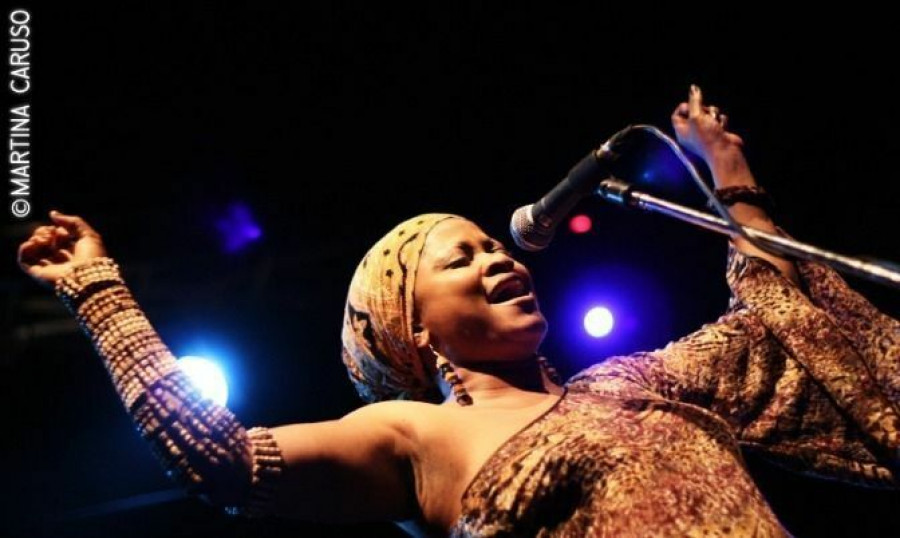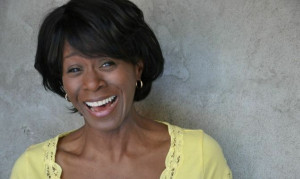Sonia Oduwa Aimy is a Nigerian and Italian trained singer, songwriter, actress and choreographer. What has always been a spiritual mission to her is now manifest in various outpourings and offerings of art. The above quote was taken from her latest musical show Voices of Orisa-Echo of African Spirituality, debuting in Toronto February 22. However, it also pertains to the character of Sonia herself: She embodies peace, contentment, knowing and creative urges. She shares her knowledge in very accessible and intelligent ways that transcend artificial human boundaries. ByBlacks wanted to get to know a little more about the woman behind African Women Acting.
What was your inspiration to embark upon an artistic career?
I was inspired by my mum who was an actress and singer. She did not take it professionally, but she inspired me nonetheless. I studied and was a leader in school projects. But it was also a gift; it was what I loved doing and what I did well. I saw it as my mission and my purpose and wasn’t motivated by the thought of making money. It was my uniqueness, and then I got lead roles in the national theatre and got to study in Europe.
How did growing up in Nigeria influence your personal and artistic development?
Nigeria as a country has a lot of great artists, for example, Fula Keti, Victor Uwaifo and I.K. Dairo. These were musicians who defined their own artistic identity, and now what they call the ‘Afrobeat’ is our beat! There are also lots of traditional cultural groups which come from the villages and sing folk-songs during festivals and parades. My mother was a member of one of those groups. My music is derived from the songs and stories that my mother passed down to me.
How did your Nigerian training as an actress/singer/choreographer, differ from the training you received in Italy?
In Nigeria, you study how to act an entire piece interpreting the various roles or characters. For example, you can be a lion which attacks, kills, devours or caresses. You can also be an arrogant king of the birds or another bird that is humble and kind. In Europe, you focus on the emotions of a character, and people are used to representing various characters. The scripts are very lyrical but textual: You can’t necessarily sing or dance in the pieces. Theatre in Nigeria is very expressive, and you can act, sing and dance in the pieces. With Nigerian dances as well, you tap into tradition and ritual. For example, there are fertility dances, marriage dances, farmer and fishermen’s dances; dances which are connected to the life of the people. There is something more spiritual there than anything in Europe.
What was it like performing as an African artist in Europe?
Very exciting. The audience varies from the theatre to the square. As a performer, you think “How can I move these people? Are they going to accept my music?” But I’ve performed for audiences which were cold at the beginning, and then responded by singing along and dancing while seated. I’ve also done corporate events where I’ve started off with a dance number, and people immediately started loosening their ties and dancing! At a square in Hungary as well, some people got a beer and started to drink and dance, and the performance and the response to it became melded in a trance.
What has it been like working in Canada, and what motivated you to found African Women Acting (AWA) in 2010?
I find it hard to live in Toronto exclusively as an artist, unlike in Europe where you can make a living being an actor or a singer. I love the audiences in Toronto, but unfortunately, I’ve had some bad experiences performing here. Unlike in Europe, there is no security at the events, so during one performance, a woman wandered on to the stage, grabbed a mike and started singing along without knowing the words! Another time, someone came on stage and just started playing the drums!
I started AWA as a forum for female artists to share their experiences and ideas, and support and mentor one another. Since then, we’ve had roundtable discussions, and I’ve written pieces for other women to perform. We’ve received calls from other groups e.g. WoodGreen Rites of Passage and Caribbean Stars. Since January of this year, we’ve been working with them to mentor youth and girls in African song, dance and acting styles. We’ll be showcasing their talent in the Voices of Orisa-Echo of African Spirituality production on February 22 and 23.
Tell me about Voices of Orisa-Echo of African Spirituality.
Well, Orisa spirituality is like an echo in the true sense of the word now. Before colonization, we had our own spirituality and our own God. Now, because of the influence of Christianity and Islam, African spirituality has been diminished and distorted. Chinua Achebe’s Things Fall Apart details the colonization process which set out to intentionally destroy African society and self-belief. So, this production resurrects and reclaims the true purpose of Orisa spirituality.
What is the true purpose of Orisa spirituality?
No racial no religious no cultural title is required to witness this happiness and internal peace and serenity
It is free
Just be wise
Look more
Listen more
Speak less
You will hear a lot
You will hear the voices
Your Inner mind
Behold, you will never be the same again
The echo will deafen you with
Respect, love, peace, happiness, kindness, humility
-VOICES OF ORISA -Echo of African Spirituality
When is the show and where can one purchase tickets to the event?
Showtimes: Saturday, February 22 at 8 PM & Sunday, February 23 at 3 PM.
Venue: Creatures Collective-Studio Bar, 824 Dundas Street West.
Tickets: $20 in advance, $25 at the door. They can be purchased at African drums & Art Crafts, 618 Dundas Street West.

 By
By 




![[REVIEW] ‘Pieces of Me' fails to break through…](/media/k2/items/cache/96e5c789d9b8bf3a9e86699e2b445aec_S.jpg?t=20170411_012126)
